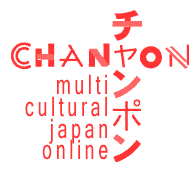2001年09月08日 土曜日
Joichi Ito
by Mizuko Ito
Business, Features, People

Founder and CEO, Neoteny Corp.
 Joi Ito is a poster child for the IT revolution in Japan. He is one of the
most outstanding Japanese Internet entrepreneurs and visionaries, and in 1997 he was chosen by Time Magazine as a member of the Cyber Elite. In 2000
he was ranked as one of the "50 Stars of Asia - Leaders at the Forefront of Change" by Business Week and commemorated by the Ministry of Posts and
Telecom for his years of service to the advancement of IT in Japan. Rubbing elbows with the business elite and embodying the hope for a more
international, wired future, he is also an outspoken agitator and critic of the old economy.
Joi Ito is a poster child for the IT revolution in Japan. He is one of the
most outstanding Japanese Internet entrepreneurs and visionaries, and in 1997 he was chosen by Time Magazine as a member of the Cyber Elite. In 2000
he was ranked as one of the "50 Stars of Asia - Leaders at the Forefront of Change" by Business Week and commemorated by the Ministry of Posts and
Telecom for his years of service to the advancement of IT in Japan. Rubbing elbows with the business elite and embodying the hope for a more
international, wired future, he is also an outspoken agitator and critic of the old economy.With a childhood split between the US and Japan, Joi found a cultural home among the international community in Tokyo as he attended Nishimachi International School and The American School in Japan. After brief stints at Tufts and the University of Chicago, Joi returned to Tokyo to launch a string of new businesses, including a nightclub, Eccosys, Japan's first web production company, Digital Garage, a web marketing and solutions provider, Internet access provider PSI Japan, Infoseek Japan, and his current company, Neoteny, an Internet business incubator and investment company.
While fluent in both Japanese and English, Joi jokes that he is probably
the only illiterate CEO in Japan, having dropped out of Japanese language classes during his school years. He insists on running a bilingual,
bicultural company, because he feels that biculturalism embodies the best hopes for Japan's future, but also so he can get away with doing his email
correspondence in English. Neoteny is not his first bicultural company. Eccosys, one of his first Internet ventures, was founded with other ASIJ
and Nishimachi alumni whose experience in the US and English proficiency gave them an edge in the dawn of the Internet in Japan.
Joi finds that his bicultural background is generally his best asset, but it does occasionally get him stuck in culture mismatches. He writes about
a shoot with photographer Tom Wagner of Business Week and Bloomberg Magazine. "I can usually keep the Japanese photographers from making me do
weird poses or 'image photos,'
but Tom always tries to get me to do strange
things. This time he made me sit back-to-back with Paul Slawson, managing director of Whitney and Co., our investor. I wonder if most CEOs like
having their picture taken. My parents taught me to be kenkyo, or understated, whenever possible, and posing makes me feel uncomfortable."
Most of his US contacts may also be surprised to know that Joi makes a mean nukamiso.
Joi is a founder and supporter of chanpon.org, his first venture in the nonprofit arena, and one that grows out of his professional interests as
well as personal background. He sees community and interpersonal relations as central to the Internet and the new economy. "What makes the Net so
different from other media is that it is much more about context, as opposed to content. Content is a static thing, like a CD or a dictionary.
Context, on the other hand, refers to things like transactions and community." He has a vision for a nonprofit organization that could govern
itself on the Internet. "It would have to have strong beliefs, policies, likes and dislikes, intelligent people, vision. It should exclude people
who are not interested in dropping out of the current advertising and market driven consumer market." Chanpon.org is one step in trying to
realize this vision.
INTERVIEW
Q:
Can you tell us one story about when your chanpon background helped
you?
A:
When building companies or joint ventures involving both American and Japanese
companies. It is much more than a language barrier that makes this difficult.
You need to create trust, which is VERY cultural.
Q:
Can you tell us one story about when your chanpon background hurt you?
A:
When I talked to someone in English in front of Japanese guests and I later
found out that they thought I was "shitsurei". Also, some of my Japanese acquaintances keep trying to talk to me in English, which I find very
uncomfortable.
Q:
What do you miss most about Japan when you are away?
A:
I missed the food the most. I also missed the game centers, the stupid TV shows and Time Bokan.
Q:
What do miss most about the US when you are in Japan?
A:
The woods in the back yard, my tropical fish, my bicycle.
Q:
What makes you feel Japanese?
A:
My Japanese tastes in food, design and sense of humor. My love of
Japanese culture.
Q:
What makes you feel you aren't Japanese?
A:
The fact that I can't read Japanese. When I can't keep up with conversations
about Japanese history.
Posted by Mizuko Ito at 2001年09月08日 07:56
